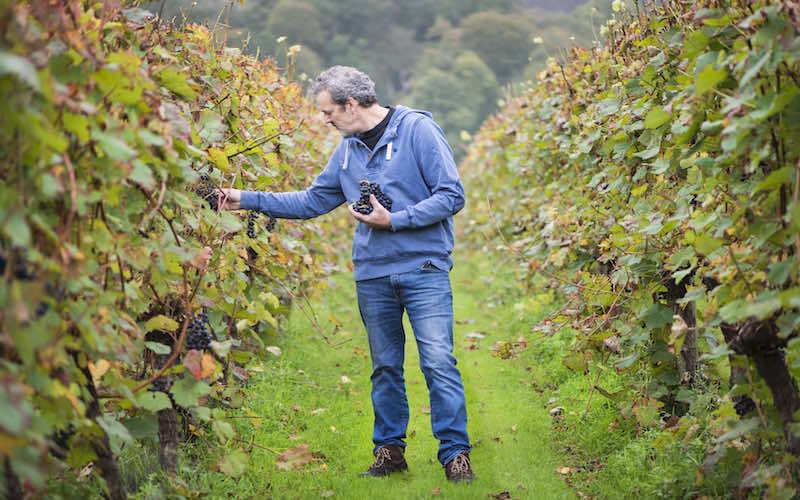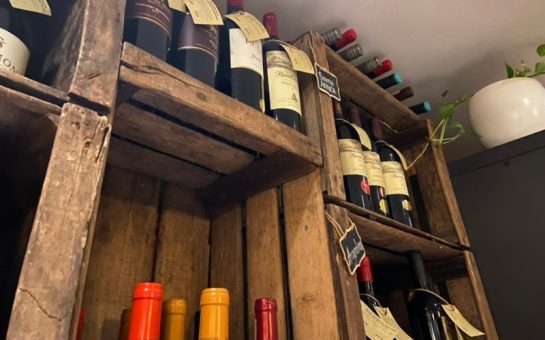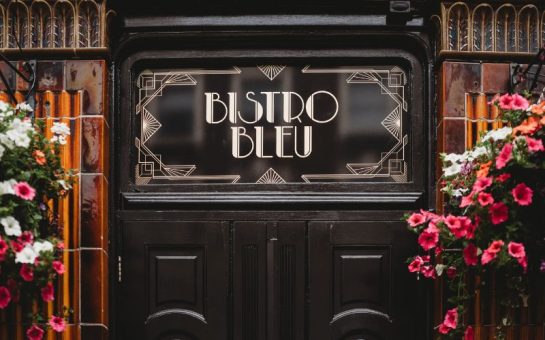By Victoria Brzezinski
August 26 2020, 14.00
Follow @SW_Londoner
UK vineyards have seen sales surge, despite orders to wholesalers and retailers grinding to a halt, wine tastings being put on hold and bars and restaurants closing in the early days of lockdown.
“Every event was cancelled; export markets cancelled or significantly reduced their order, all plans for the year went out the window,” recalled Jonica Fox, the estate owner of Fox & Fox, a family-owned Sussex vineyard which makes low-intervention sparkling wines.
“We realised early on that the internet was the thing that was going to make or break us, and we did so much better than we thought we’d do,” Mrs Fox said.
Fox & Fox reports triple digit sales growth year-on-year, and scooped several gongs at the Sommelier Wine Awards 2020 in March, which put it as runner up for sparkling wine producer of the year.
“Being runner up to Taittinger is something I was quietly glowing about. We also won gold for a limited edition wine which we named, by chance, CV. In hindsight, not the initials we’d pick! It stands for Chairman’s Vat and is my husband’s own blend.”
A silver lining to the Covid-19 cloud: people around the country have been keener than ever to support local producers, and many had the time to enjoy and explore something new. Producers and local wine shops upgraded their online offerings, with many doing click and collect or free local deliveries in an effort to keep their businesses afloat.
“We dropped delivery charges, offered next day delivery with £2 per bottle being donated to the great charity Hospitality in Action,” said Mardi Roberts, a director at Ridgeview Wine Estate in Sussex. “Our online bottle sales increased by over 1000% on previous web sales, making up for some of the losses of bigger volumes elsewhere.
“Since we’ve reopened our doors to customers safely we have had a great appetite for visitors enjoying our wine garden, tours, picnic and platters of Sussex produce outdoors among the vines.”
Lyme Bay Winery, based in Axminster, Exeter, reported triple digit growth in online sales of both sparkling and still wines during lockdown. “Despite losing certain trade channels, we saw a huge surge in director-to-consumer sales via our website,” said James Lambert, Lyme Bay’s winery manager.
“We are moving much more towards an e-commerce site, and looking at the Amazon model to see what’s possible from a smaller producers’ perspective.”
“Sales of our wines went through the roof during lockdown,” said Jane Mohan, the owner of West Street Vineyard, in Coggeshall village, Essex. “There’s a definite trend to buy local and support local small vineyards for which I feel terribly grateful.”
“We got a massive amount of new business through social media,” said Duncan Schwab, CEO and head winemaker at Sharpham Vineyard near Totnes, Devon, which produces around 120,000 bottles of wine annually. “People were buying wines they wouldn’t ordinarily have tasted, and thinking, ‘wow, this is really good’.
“Preconceptions are changing massively. The proof of the pudding is in the tasting. We’ve had an influx of people coming to visit the vineyard, having ordered online.”

The quality of wine produced from vineyards in England and Wales is better than it has ever been. British sparkling wines make up 69% of production and are increasingly the celebratory drink of choice for big bashes, with flag-bearers like Chapel Down and Nyetimber helping to cement the reputation of UK wines.
“England is one of the ultimate cool climate regions, like Oregon, and like Champagne once was; a lot of Champagne’s vineyards are heating up with global warming, hence the march up north,” added Mr Schwab.
Nyetimber predicts English sparkling wine production will double over the next decade, to 20m bottles a year, despite the potential disruption to exports and possible labour shortages by Brexit negotiations and Covid.
French champagne house Taittinger has planted vines in Kent, and a joint venture between Pommerey and owner of Veuve Clicquot and Dom Pérignon, LVMH, is understood to be hunting for production areas in England.
There are 164 wineries and 763 vineyards in England and Wales, according to WineGB. More than 10m bottles were produced last year, and area under vine — land that has been planted with vines — has tripled since 2000, to 3,500ha, according to Savills, and is predicted to increase by between 93% and 116% by 2024.


